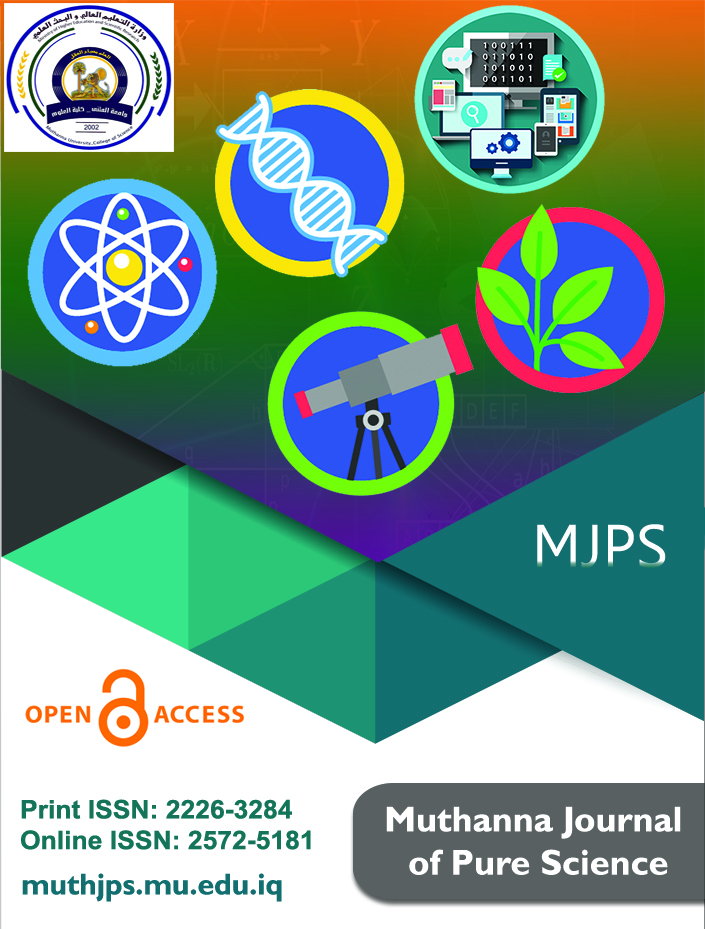Synthesis and Characterization Studies of new Heterocyclic Azo Compound 2-[2‾-(4,5-Dimethyl thaizolyl azo]-5-Amino Anilin with some Complexes Metal Ions
AbstractKey wordsDOI
This work included the preparation of a new ligand of heterogeneous azo ligands derived from thiazole 2- [2‾-(4,5-Dimethyl thaizolyl azo]-5-Amino Anilin (DMeTAAA) and some of its metallic complexes were diagnosed by means of the infrared spectrum, mass spectrum, nuclear magnetic resonance proton spectra, ultraviolet-visible spectrum, thermogravimetric analysis, and in addition to the careful analysis of the elements. Eight metal complexes were prepared by reaction the prepared ligand with Chromium (III), Iron (II), Cobalt (III), Nickel (II), Copper (II), Zinc (II), mercury (II) and silver (I). The effect of the solvent on ligand has been studied and the results have indicated that all the obtained complexes possess high stability. The percentage of metallic ions in the prepared complexes was obtained by the flame atomic absorption spectrometer. A careful analysis of the elements showed a great compatibility between the theoretically calculated and practically obtained ratios. The results of magnetic sensitivity showed that Cr(III),Ni(II) and Cu(II)-complexes possessed magnetic para qualities while the other complexes possessed magnetic dia qualities, as well as the molar conductivity of the prepared complexes was studied and the results showed that all complexes possess the ionic Based on the results obtained, the synthetic formulas of chelated complexes were proposed revealing that the investigated thiazolele azo ligand behaves as a triple ligand.
heterogeneous azo, metal complexes, TGA and mass spectrum
Download full article

